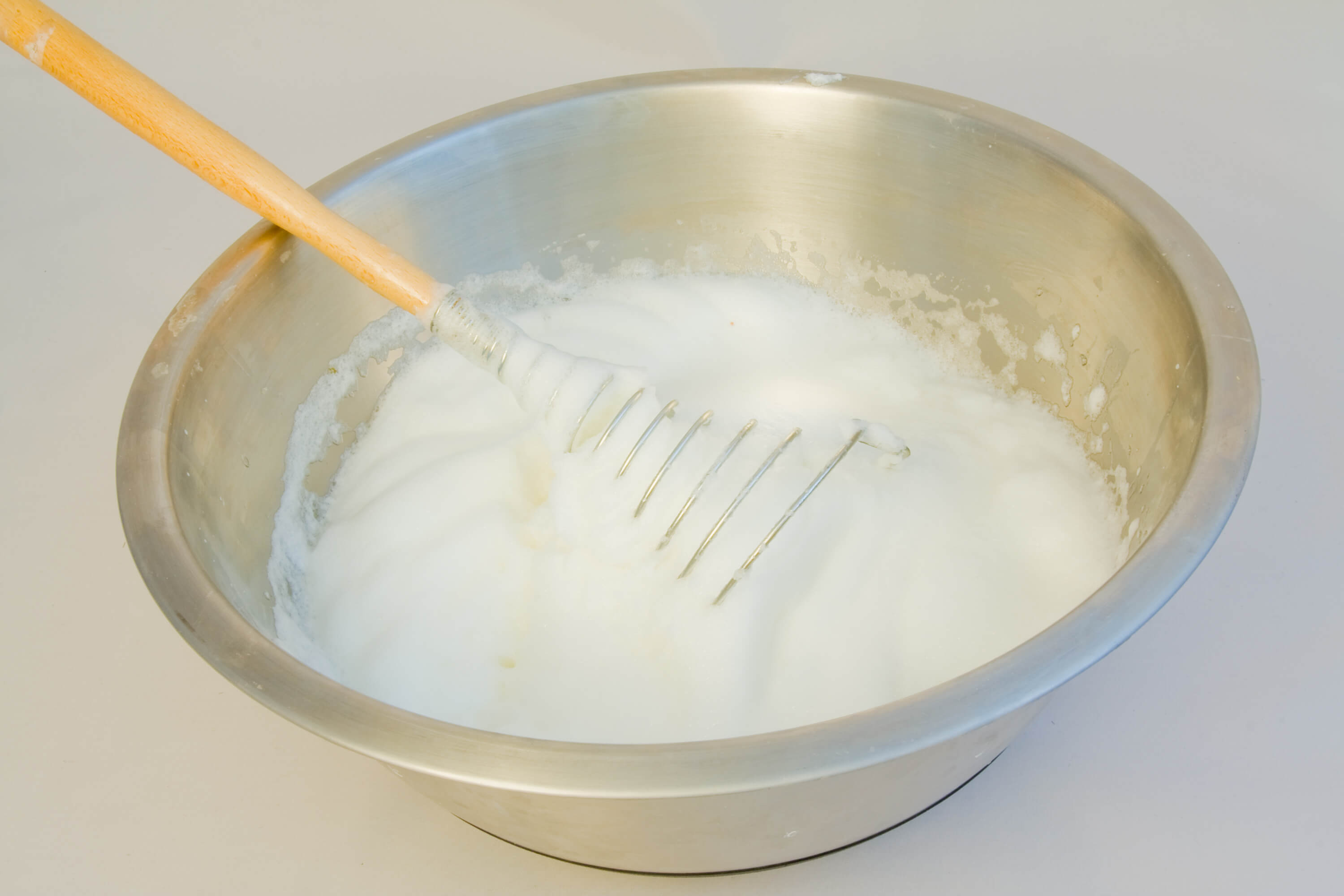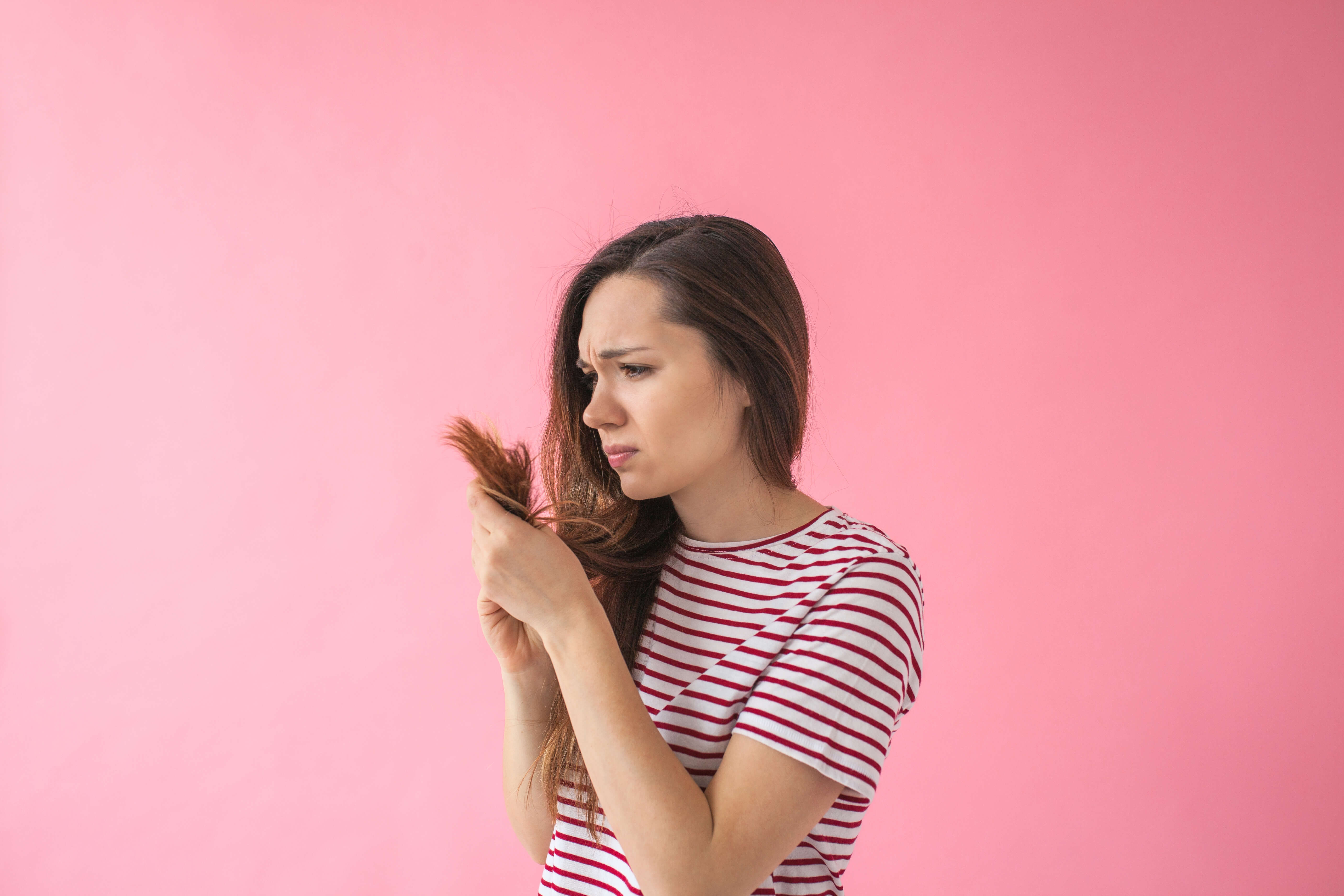More and more people are opting out of using chemicals to control their curls. Textured hair comes with a multitude of curl patterns and techniques to tame them. One thing that all natural hair has in common is that it needs protein to be healthy.
Our bodies naturally produce a protein called keratin that helps strengthen our hair. Regularly using heat and chemicals on the hair strips it of the helpful protein. Protein treatments replenish lost keratin for healthier hair.
The type of treatment you need depends on how damaged our hair is, the texture (coarse, fine, etc.) and the level of porosity. In hair, porosity refers to how easily your hair absorbs and maintains the moisture. You can try the “strand test” to see how porous your hair is. Take a strand of your hair and drop it into a small cup of water. If your hair sinks, that means your hair porosity is high. Conversely, if the strand sinks, you have low porosity.
Your hair type will determine how often to use protein treatments. Hair with low porosity can have difficulty absorbing the moisture but once it is absorbed, the hair retains the proteins. High porous hair, on the other hand, absorbs and loses the moisture quickly, leaving hair frizzy and dry.
Adding protein to your diet can help the body produce keratin to keep your hair from drying out. Protein treatments are also a simple way to give your hair the moisture it needs.
How Do You Know if Your Hair Needs a Protein Treatment?

The human head sheds over 100 strands of hair every day. This is completely normal. However, excessive hair loss can be an indicator of weak hair in need of a protein treatment. Hair loss can also be caused by medications, stress, vitamin deficiencies or hormonal issues. If you know none of those situations are the problem, you can try a protein treatment to replenish the lost protein.
Dry, limp hair that tangles easily is a sure sign that your hair needs a quick protein infusion. Adding more styling products to make your hair manageable can actually damage it further.
However, your hair can also be damaged by too much protein. If your hair is hard to the touch, it most likely has too much protein and it is not necessary to do a protein treatment yet. Hair that is breaking from being too soft is another indication of too much moisture. Using a clarifying shampoo can help reduce excess moisture.
It can be a balancing act to find the right combination of protein and moisture that keeps your hair healthy and long. Longer hair requires that each strand is healthy or your hair will look bland and limp.
The best way to prevent over moisturizing your hair is by choosing remedies with natural ingredients over store-bought protein treatment products. Using store-bought products in moderation CAN be effective.
How Often Should You Do a Protein Treatment On Natural Hair?
There is no set frequency for how often protein treatments should be used on the hair to replenish moisture. The condition of the individual’s hair plays a significant role in how often the treatments are needed. Too much protein is equally as damaging as not enough protein. Protein overload can cause the hair to break the same way dry hair does.
The general rule is deep protein treatments need to be done every 4 to 6 weeks, following the same schedule as your regular trims.
Another variable is the different types of protein treatments:
- Deep treatments work best every 2 weeks for moderately damaged hair.
- Protein packs for mildly damaged hair should be done every 2 months.
- Light leave-in protein treatments are for hair that is slightly damaged.
- Severely damaged hair benefits from reconstructor treatments every 2 weeks.
Are Protein Treatments Good for Natural Hair?
In a word: Yes. Protein treatments are a great way to replenish lost keratin, as long as the treatments are used in moderation.
Protein treatments can stimulate the roots of the hair to rebuild the damaged strands. Keratin is essential to the hair’s elasticity. Hair elasticity means how far the individual curl can stretch and then return its natural state. High elasticity means your hair has adequate moisture. Hair with low elasticity will feel brittle and dry to the touch.
Nutrients and vitamins are fundamental to the growth of healthy hair. Protein treatments can help provide these necessities. Some types of hair easily absorb moisture but don’t seal in the moisture to prevent dry hair. Protein treatments can help these porous strands.
Keratin gives your hair its structure and shape. Protein-starved hair can result in a limp appearance or even hair loss. Protein treatments are especially helpful if your hair has recently been dyed or undergone a chemical process, both of which strip moisture and protein from the hair.
What is the Best Homemade Protein Treatment For Hair?
Conditioning protein treatments can help restore the hair’s strength and health. There are plenty DIY protein treatments that can be made from products already in your home.
Homemade Protein Treatments:
Eggs & Mayonnaise Hair Mask

Eggs and mayonnaise are two all-natural ingredients that are ripe with moisturizing proteins. Mix the eggs and mayonnaise with honey or extra virgin olive oil for a pH-balanced protein treatment for natural hair. The egg and mayonnaise mixture can be used once a month to help replenish protein.
Egg or Egg Whites Mask

Eggs are rich in both protein and healthy enzymes that help remove damaging built-up protein and hair products. For a super simple protein treatment for damaged hair, beat an egg and apply the egg to your hair and scalp. Allow the egg to sit on your hair for 20 minutes before rinsing off.
Separated egg whites are best used on frizzy or oily hair. The egg mask can be used on the damaged hair every two weeks until there is a noticeable difference.
Avocado Mask

Avocados are rich in proteins, nutrients and the good type of fat that repairs damaged hair. Mix avocado with 2 tablespoons mayonnaise to make a protein treatment mask. Apply as a conditioner once a week. Leave the mask on your hair for 20 minutes before rinsing with warm water.
Coconut Butter

Coconut is another natural ingredient that is full of healthy fats and healing proteins. The coconut butter or oil can be applied directly onto your hair as a moisturizing conditioner. To avoid a protein overload, use the coconut treatment once a week.
Eggs, mayonnaise (which contains eggs,) coconut and avocado are foods that are easily used for protein treatments on natural, textured hair to repair the damage.
Top 3 Hair Protein Treatments
If DIY hair treatments aren’t for you, there are protein treatments readily available at your local drug store. A pricey visit to the salon isn’t necessary. Try these 3 great products instead:
Palmer's Coconut Oil Formula Deep Conditioning Protein Pack

Photo Credit: Amazon
Palmer's Coconut Oil Formula® with Vitamin E Deep Conditioning Protein Pack uses coconut milk to restore lost keratin and silk proteins for healthier, moisturized locks.
Dr. Miracle's Miracle Repair 3 Step System

Photo Credit: Amazon
The 3-step process of Dr. Miracle’s MIracle Repair System rebuilds fragile hair by strengthening each strand to absorb and retain moisture. Step 1 in the system is a No Lather Conditioning Shampoo that cleanses excess product and debris from your hair. Step 2 is the DuoCare Reconstructor that rebuilds the damaged cortex of the hair. The 3rd step is the Intensive Moisturizing Masque that replenishes the moisture lost from lack of protein.
Shea Moisture JBCO Deep Conditioner

Photo Credit: Amazon
The JBCO in this product stands for Jamaican Black Castor Oil, which strengthens the curls of damaged or chemically processed hair. This is a product for someone who frequently uses heating tools on their hair or regularly colors their locks.
Conclusion
For many women, their hair is tightly tied to their personality and physical appearance. Damaged hair can be a hit to your self-esteem. Protein treatments can give you back beautiful, healthy hair. When used correctly, protein treatments can repair dry, damaged hair. Give your hair back its strength.
References
https://www.essence.com/hair/hair-products-tools/protein-treatments-natural-hair/#53412


 Dry Hair Remedies – At Home
Dry Hair Remedies – At Home  Best Curl Enhancing Products for Curly Hair
Best Curl Enhancing Products for Curly Hair